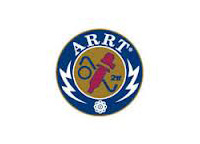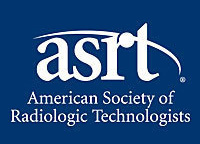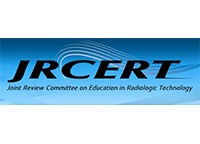| Course Title | Credit |
|---|---|
| Professional Prospectus | 1 |
| Pre-Clinical Preparation | 3 |
| Clinical Practice I | 3 |
| Clinical Practice II | 3 |
| Clinical Practice III | 3 |
| MRI Physics I | 3 |
| MRI Physics II | 3 |
| MRI Image Analysis | 3 |
| MRI Registry Review | 3 |
| Computer Applications in Medical Imaging | 3 |
| Applied Sectional Anatomy | 3 |
| MR Procedures and Pathophysiology I | 3 |
| MR Procedures and Pathophysiology II | 3 |
| Total Program Credits | 37 |
Bay College, Grand Rapids Community College, Kellogg Community College, Lake Michigan College, Lansing Community College, Mid Michigan Community College and St. Clair County Community College offer the
Magnetic Resonance Imaging (MRI) Technologist Online Program
through
Michigan Colleges Online
Program Description
MRI technologists are highly educated and possess the advanced skills and knowledge necessary for competent practice. The ability to critically think and communicate is paramount to the success of an MRI technologist. They must have the ability to synthesize information and apply rational judgment in determining appropriate protocols that affect image quality and diagnostic outcome. They must find balance between equipment capabilities and patient condition to arrive at the highest quality images for interpretation by the physician. The MRI environment presents unique patient care and safety issues that require exceptional attention to detail.
This program provides a thorough foundation in MRI procedures, pathophysiology, and physics. When this education in combined with a sound base of clinical practice that meets national programmatic accreditation standards, a superior graduate capable of meeting professional workforce needs results. The MRI program is designed not only to foster the skills and knowledge necessary for competent practice in MRI, but also places emphasis on professional attitudes, values and behaviors that encourage the professional growth of the individual student, thus assuring graduates of a place on the medical imaging team.
Clinical learning experiences are provided by affiliating hospitals, clinics and other MRI provider facilities. Didactic learning experiences occur in supportive college course work delivered through an online environment. Both are equally important to the development of the competent MRI technologist.
Under these philosophies, the program assumes the responsibility of a facilitator of learning. Specifically, it will plan, select, administer, and assess learning experiences. These experiences are developed to meet established objectives and eligibility requirements of the American Registry of Radiologic Technologists (ARRT) to complete the national MRI credentialing examination.
The MiRIS MRI program prepares students to become eligible to complete the MRI certification exam administered by the American Registry of Radiologic Technologists (ARRT). The program terminates in an award of an Associates of Applied Science degree or a Certificate of Completion as determined by the college issuing the award. The program has been developed to be consistent with standards and requirements of the Joint Review Committee on Education in Radiologic Technology (JRCERT), the American Society of Radiologic Technologists (ASRT); the American College of Radiology (ACR); the American Registry of Radiologic Technologists (ARRT) and the Michigan Radiologic and Imaging Science (MiRIS) consortium.
-
There are 37 core program credits is required for program completion.
-
A student must maintain the minimum grade requirement as indicated for each course or and in accordance with the policies of the college issuing the terminal award of a degree or certificate.
-
Application to complete the certification examination administered by the ARRT is granted only if the student fulfills all academic and clinical criteria established by the ARRT, the MiRIS program and the college issuing the terminal award of a degree or certificate. Please refer to the ARRT Certification Handbook or contact the ARRT for eligibility requirements.
-
Effective January 1, 1994, individuals having been convicted of a felony or misdemeanor must file a pre-application with the ARRT in order to obtain a ruling on the impact of the conviction on their eligibility to complete the ARRT certification examination. Information about the pre-application process may be found on the ARRT’s website. Visit www.ARRT.org. The pre-application process can be found within the "Ethics" link. It is strongly encouraged that students pursue the pre-application process either prior to entering the program or as early in the program as possible to avoid investing time, money, and effort should they be found ineligible to complete the certification exam.
-
A student must complete and pass all clinical access requirements as determined by clinical education providers. These include health related evaluations, criminal background check(s) and drug screening. Failure to successfully pass any of these requirements will require that the student withdraw from the MRI program.
-
All policies regarding certificate or degree completion can be found in the catalog of the college issuing the certificate or degree, or by contacting the MiRIS Consortium Council member of the college issuing the certificate or degree (Program Director).
-
Students will be required to undergo a physical examination, immunizations, a drug screen, criminal background check, and any other clinical site requirements prior to and potentially during clinical placement according to MRI program policies as required by affiliating clinical education providers.
-
Students who have a misdemeanor or felony conviction will also be required to submit a pre-application to the American Registry of Radiologic Technology (ARRT) to determine eligibility to complete the MRI certification exam earning nationally recognized professional credentials. For more information, visit the ARRT website @ www.arrt.org.
-
Students will be required to maintain certification in Healthcare Provider CPR according to MRI Program policies as required by affiliating clinical education providers during enrollment in the clinical education courses.
-
Students will be required to maintain professional liability insurance according to MRI Program policies as required by affiliating clinical education providers during enrollment in the clinical education courses. Some MRI program colleges provide this insurance; others require students to acquire it.
-
Students will be required to adhere to the uniform and personal appearance code according to MRI Program policies as required by affiliating clinical education providers during enrollment in the clinical education courses.
The mission and purpose of the MiRIS MRI Program is to provide for both the personal and professional career development of each MRI student. The general goals of the program are:
-
Goal 1: Graduates will demonstrate the knowledge and skills necessary for competency as an entry-level Magnetic Resonance Imaging Technologist.
-
Goal 2: Graduates will exhibit professional growth and development through the values, attitudes and behaviors necessary of an entry-level Magnetic Resonance Imaging Technologist.
-
Goal 3: To prepare graduates to demonstrate the ability to apply critical thinking skills and problem solving in their field.
-
Goal 4: To prepare graduate to communicate effectively and professionally.
-
Goal 5: Graduates will complete the program within the scheduled timeframe with the ability to earn ARRT credentials to successfully work in the field of medical imaging.
Graduates of the MiRIS MRI program will be entry-level MRI technologist
prepared to complete the ARRT certification exam.
Upon program completion, students will:
-
Apply knowledge of anatomy, physiology, positioning, and MRI sequence parameters to accurately demonstrate anatomical structures.
-
Determine imaging parameters to achieve optimum imaging.
-
Evaluate images for appropriate positioning, coil selection, and image quality.
-
Apply the principles of ferromagnetic safety and contrast application for the protection of the patient, technologist, and others.
-
Recognize emergency patient conditions and initiate life-saving first aid and basic life-support procedures.
-
Evaluate the performance of MRI systems, know the safe limits of equipment operation, and report malfunctions to the proper authority.
-
Participate in MRI quality assurance programs.
-
Provide care and comfort in regard to the holistic health of the patient, technologist, and others.
-
Provide patient education related to MRI procedures.
More information can be found in the Student Handbook.
| Summer I | Fall | Winter | Summer II |
|---|---|---|---|
| Professional Prospectus | MRI Physics I | MRI Physics II | MRI Registry Review |
| Pre-Clinical Preparation | MR Procedures & Pathophysiology I | MR Procedures & Pathophysiology II | Clinical Practice III |
| Applied Sectional Anatomy | Computer Applications in Medical Imaging | MR Image Analysis | |
| Clinical Practice I | Clinical Practice II |
2018-2019 MRI Program Academic Schedule
2019-2020 MRI Program Academic Schedule
| Contact Person | E-mail address | |
|---|---|---|
| Amy Lee, Ed.D. RT(R)(MR), MRSO | Michigan Community College Association | alee@mcca.org |
Safety Statement
Due to the strength of the magnetic fields used in the MRI department certain implants and devices may pose a medical problem. Please review the safety screening form for a list of possible contraindications. If you have any questions please contact the Program Director.
Program Effectiveness Data
The following data shows completion and credentialing exam pass rates for recent MiRIS MRI Program graduates.
Completion Rate (2014-18)
| Grad Year | Program Completion | Results |
|---|---|---|
| 2014 | 87% | 26 of 30 graduated |
| 2015 | 93% | 28 of 30 graduated |
| 2016 | 80% | 24 of 30 graduated |
| 2017 | 87% | 26 of 30 graduated |
| 2018 | 90% | 27 of 30 graduated |
| Average | 87% |
Credentialing Examination Pass Rate (2014-18)
This number reflects the number of students who passed our national certification examination through the American Registry of Radiologic Technologists on the first attempt within 6-months of graduation. Ninety-six of the 118 students setting for the examination passed. This is a pass rate of 81 percent.
Job Placement Reporting within one year of Graduation (2014-2018)
| Grad Year | Job Placement | Results |
|---|---|---|
| 2014 | 100% | 20 of 20 graduates reported being employed within 12 months of graduation. |
| 2015 | 95.6% | 22 of 23 graduates reported being employed within 12 months of graduation. |
| 2016 | 100% | 23 of 23 graduates reported being employed within 12 months of graduation. |
| 2017 | 100% | 26 of 26 graduates reported being employed within six months of graduation. |
| 2018 | 100% | 24 of 24 graduates reported being employed within six months of graduation. |
| Average | 99% |
JRCERT Program Accreditation Information
| ARRT | ASRT | JRCERT |
|---|---|---|
 Visit the official website of the
American Registry of Radiologic Technologists.
Visit the official website of the
American Registry of Radiologic Technologists.
|
 Visit the official website of the
American Society of Radiologic Technologists.
Visit the official website of the
American Society of Radiologic Technologists.
|
 Visit the official website of the
Joint Review Committee on Education in Radiologic Technology.
Visit the official website of the
Joint Review Committee on Education in Radiologic Technology.
|